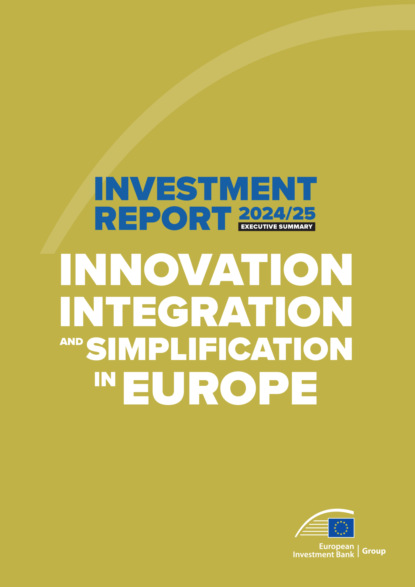Umfang 27 Seiten
0+
EIB Investment Report 2024/2025 - Executive summary
Über das Buch
The European Union must solidify its position as a global leader in technology, innovation and clean energy. By addressing key challenges and leveraging existing strengths, Europe can enhance its competitiveness, foster economic growth and show the world how to successfully transition to green energy. In short, Europe needs to:Better integrate the EU single market and simplify access to it. Market fragmentation caused by regulatory and structural differences hinders the businesses' ability to take full advantage of the wider European market. This is particularly true for innovative firms – 74% of them cite regulators inconsistencies as a barrier to expanding their business. Simplifying regulatory compliance could reduce costs, which currently account for about 1.8% of turnover for firms and 2.5% for small and mid-size companies.Marshal investment for innovative young firms and the broader digital transformation. Europe has a strong research base and industrial capacity, but innovative firms often have difficulty finding funds to scale their business. European firms have also made less progress integrating big data analysis and artificial intelligence into their production and services – the share of EU firms using these services is 6 percentage points lower than in the United States. Improving this adoption could bring significant productivity gains for European firms.Push forward with the green transition. Europe needs to combine its ambitious climate goals with a realistic and pragmatic roadmap that would help companies seize the opportunities presented by the green transition. The energy revolution is in full swing. Renewable energy supplied almost half (48%) of Europe's electricity demand in 2024, with emissions from power generation falling 13% during the year. Europe's climate leadership is also paying off economically, as EU companies profit from growing exports of low-carbon technologies. European exports in those products have risen 65% since 2017, compared with 79% for China and only 22% for the United States.By fostering collaboration, targeting investments and maintaining a consistent regulatory framework, Europe can capitalise on its strengths to drive sustainable growth, technological leadership and economic resilience in an increasingly competitive global landscape.
